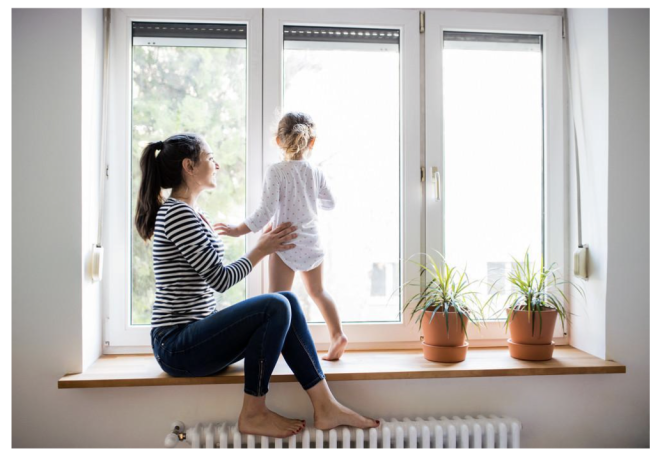- Change theme
Maximizing Home Efficiency: How HVAC Lifespan, Window Loss, and Skilled Technicians Impact Energy Use

Understanding the lifespan of your HVAC system is crucial in maximizing home efficiency.
03:17 14 June 2025
Understanding the lifespan of your HVAC system is crucial in maximizing home efficiency. The longevity of these systems can significantly impact energy consumption and maintenance costs. According to This Old House, most HVAC systems can last up to two decades with the right maintenance. Regular upkeep, such as changing filters and scheduling annual tune-ups, can extend their operational lifespan. By ensuring your HVAC system runs efficiently for as long as possible, you can take full advantage of its capabilities without premature replacements.
The benefits of extending the lifespan of HVAC systems are multifaceted. Not only do homeowners enjoy reduced energy bills, but they also minimize the environmental footprint of producing new units. Consistent maintenance can prevent common issues, such as leaks and component wear, that often lead to inefficiencies. By investing in proper care, your home becomes a greener and more cost-effective place to live. Fostering this longevity contributes to both personal savings and broader environmental benefits.
Making informed decisions about your home's HVAC system starts with understanding its life expectancy. It’s essential to know when your system was installed and follow guidelines for its upkeep. Additionally, considering energy-efficient upgrades during any repairs can extend its utility even further. An HVAC system operating at peak performance ensures better indoor air quality and consistent comfort levels. With attention to these details, homeowners can achieve an efficient, long-lasting climate control system.
Reducing Energy Loss Through Windows
Windows play a significant role in home energy efficiency, being a common source of heat loss. According to the Department of Energy, approximately 30% of a home's heating energy can be lost through windows. This considerable percentage highlights the importance of taking measures to reduce this loss. Installing energy-efficient windows or adding window film can significantly cut down on heat transfer. By optimizing window efficiency, homeowners can greatly influence their overall energy usage.
Addressing window-related energy loss involves both structural enhancements and behavioral changes. Using heavy draperies and blinds can aid in insulating rooms, especially during colder months. Additionally, ensuring airtight seals around windows prevents drafts that increase energy demand. Implementing these strategies can dramatically enhance the overall thermal efficiency of a home. These simple yet effective methods reduce dependency on HVAC systems for maintaining comfortable indoor temperatures.
When homeowners focus on reducing window inefficiencies, they also foster a more sustainable living environment. Updating or augmenting existing windows can contribute to larger energy conservation efforts. Investing in these home improvements pays off over time through reduced utility bills and increased home value. Each small adjustment compounds to facilitate significant energy savings. Homeowners worldwide are recognizing the importance of these modifications to create greener, more efficient homes.
The Role of Skilled HVAC Technicians
Skilled HVAC technicians are critical assets in maintaining home energy efficiency. As per This Old House, about 8% of HVAC technicians operate independently as of 2023. These skilled professionals bring with them the expertise necessary for prolonging the life of HVAC systems and optimizing their efficiency. The independence of many technicians also means a high level of personalized service and tailored maintenance strategies. Their expertise is essential in diagnosing issues promptly and recommending effective solutions.
The relationship between homeowners and HVAC technicians can significantly impact the overall lifespan and efficiency of home systems. Advisory on system optimization and energy-saving techniques is a crucial part of their role. Regular checkups by skilled technicians can uncover inefficiencies that might otherwise go unnoticed. This professional oversight ensures that systems are working at peak performance and that major problems are prevented. Having a reliable technician can alleviate many of the challenges associated with HVAC maintenance.
Homeowners benefit from establishing a long-term relationship with trustworthy HVAC technicians. These professionals provide invaluable insight into potential upgrades and energy-efficient practices. Their specialized knowledge contributes directly to the sustainability and functionality of home systems. Moreover, the right technician can help homeowners navigate complex HVAC decisions and effectively manage maintenance costs. The expertise of skilled professionals not only maintains optimal functionality but also enhances the long-term value of a home.
